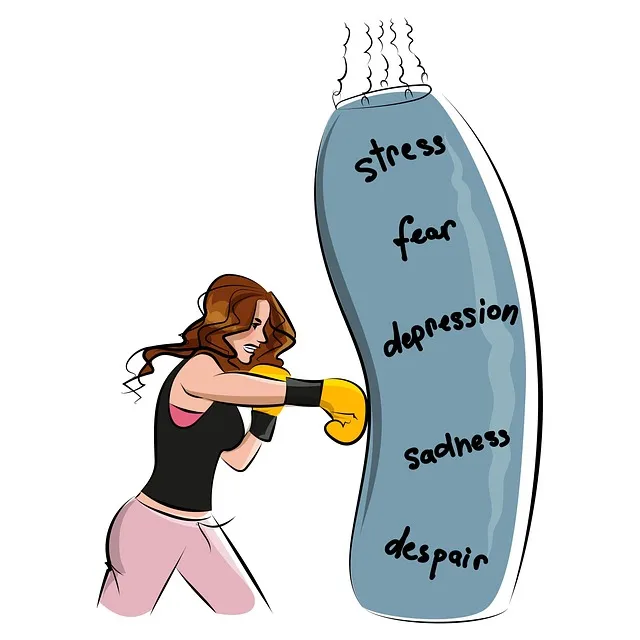Substance abuse poses significant risks to physical and mental well-being, with regular use leading to dependence and addiction. The Lone Tree Kaiser Permanente mental health center reviews highlight a holistic approach to prevention and treatment, focusing on emotional intelligence, cognitive behavioral therapy (CBT), self-care practices, and community support. By addressing underlying mental health conditions and fostering open dialogue, the center promotes healthy coping mechanisms, reduces vulnerability to addiction, and empowers individuals for long-term recovery, as evidenced by positive reviews.
Substance abuse poses significant risks to individuals and communities. This article explores comprehensive risk reduction strategies, focusing on understanding substance abuse, the interplay of mental health, prevention tactics, and recovery support. We highlight Kaiser Permanente’s Lone Tree Center, known for its innovative approach to mental health care. By integrating evidence-based practices and community resources, this center sets a benchmark for successful substance abuse mitigation. Discover how mental health awareness and accessible treatment centers contribute to positive outcomes, as showcased by Lone Tree Kaiser Permanente reviews.
- Understanding Substance Abuse and Its Risks
- The Role of Mental Health in Risk Mitigation
- Strategies for Preventing Substance Abuse
- Kaiser Permanente's Approach: Lone Tree Center Overview
- Community Support and Resources for Recovery
Understanding Substance Abuse and Its Risks

Substance abuse refers to the harmful use of alcohol, prescription drugs, or illegal substances, leading to significant impairments in an individual’s daily functioning and overall mental wellness. It is a complex issue that can have severe short-term and long-term consequences for physical health, relationships, and overall quality of life. Lone Tree Kaiser Permanente mental health center reviews highlight the need for accessible and comprehensive support systems to tackle this growing concern.
Understanding the risks associated with substance abuse is crucial. Regular use can lead to dependence and addiction, making it difficult for individuals to control their intake. The Mental Wellness Podcast Series Production often emphasizes empathy-building strategies as a key component of risk reduction. By fostering open conversations, promoting mental health awareness, and providing support networks, communities can play a significant role in preventing and mitigating the impacts of substance abuse.
The Role of Mental Health in Risk Mitigation

Mental health plays a pivotal role in mitigating risks associated with substance abuse. According to reviews from the Lone Tree Kaiser Permanente mental health center, integrating emotional intelligence and coping strategies can significantly reduce vulnerability to addiction. Emotional Intelligence (EI) helps individuals understand and manage their emotions, which is crucial for preventing stress-related substance misuse. Techniques like mindfulness meditation, a popular offering at Lone Tree Kaiser, have been shown to alleviate anxiety and burnout, thereby reducing the likelihood of turning to substances as a coping mechanism.
Furthermore, addressing underlying mental health conditions through therapy or counseling can prevent or reverse the cycle of addiction. By focusing on Anxiety Relief and Burnout Prevention, individuals can develop healthier ways of dealing with life’s challenges, making them less reliant on drugs or alcohol. These proactive measures, often supported by specialized centers like Lone Tree Kaiser Permanente, are essential in creating a robust defense against substance abuse, promoting overall well-being and recovery.
Strategies for Preventing Substance Abuse

Substance abuse prevention is a multifaceted approach that starts with understanding and addressing underlying risks. At the Lone Tree Kaiser Permanente mental health center, reviews highlight successful strategies for at-risk individuals to turn their lives around. One key strategy involves mood management techniques, such as cognitive behavioral therapy (CBT), which helps individuals recognize and change negative thought patterns leading to substance abuse. CBT encourages self-awareness exercises that promote understanding of personal triggers and emotional responses, empowering individuals to make healthier choices.
In addition, fostering mental wellness through regular self-care practices like mindfulness meditation, exercise, and supportive social connections can significantly reduce the risk of substance abuse. Encouraging open dialogue about mental health issues in a safe environment, similar to what is observed at Lone Tree Kaiser Permanente based on reviews, allows individuals to seek help early and avoid turning to substances as coping mechanisms. Self-Awareness Exercises play a crucial role in this process by helping individuals develop strategies for managing stress, anxiety, or depression without resorting to harmful behaviors.
Kaiser Permanente's Approach: Lone Tree Center Overview

Kaiser Permanente’s Lone Tree Mental Health Center stands as a beacon of hope and healing for those grappling with substance abuse. This renowned facility incorporates holistic approaches, including Mind Over Matter principles, Compassion Cultivation Practices, and Stress Management Workshops, offering a comprehensive strategy to address the root causes of addiction. The center’s focus on individual well-being goes beyond traditional treatment, fostering an environment that nurtures resilience and promotes long-lasting recovery.
With a team of dedicated professionals, Lone Tree Kaiser Permanente provides personalized care tailored to each patient’s unique needs. Through evidence-based therapies and supportive services, individuals not only overcome substance abuse but also develop the tools for mental well-being. The center’s positive mental health center reviews attest to its effectiveness, making it a preferred choice for those seeking transformative healing and a new beginning.
Community Support and Resources for Recovery

Accessing community support is a vital component of substance abuse recovery. Organizations like Lone Tree Kaiser Permanente mental health center reviews highlight the importance of integrated care, offering services that cater to both physical and mental health needs. These centers often provide a safe space for individuals in recovery, facilitating peer support groups, counseling sessions, and therapy programs tailored to their unique challenges. By fostering a sense of community, these resources empower individuals to stay motivated and maintain sobriety.
Additionally, social skills training and emotional well-being promotion techniques play a significant role in risk reduction. Community initiatives focused on mental illness stigma reduction efforts can significantly impact an individual’s recovery journey. Through education and awareness campaigns, these programs encourage open conversations about substance abuse and mental health, breaking down barriers to treatment. By fostering understanding and acceptance, community support networks create an enabling environment for long-term recovery and improved emotional resilience.
Substance abuse poses significant risks, but a multi-faceted approach can effectively reduce these hazards. Integrating mental health services, implementing preventative strategies, and leveraging community support are key components of successful risk reduction. The Lone Tree Kaiser Permanente mental health center serves as a model for comprehensive care, offering valuable resources for those seeking recovery. By combining professional treatment with community outreach, we can create a supportive environment that empowers individuals to overcome substance abuse and lead healthier lives.






